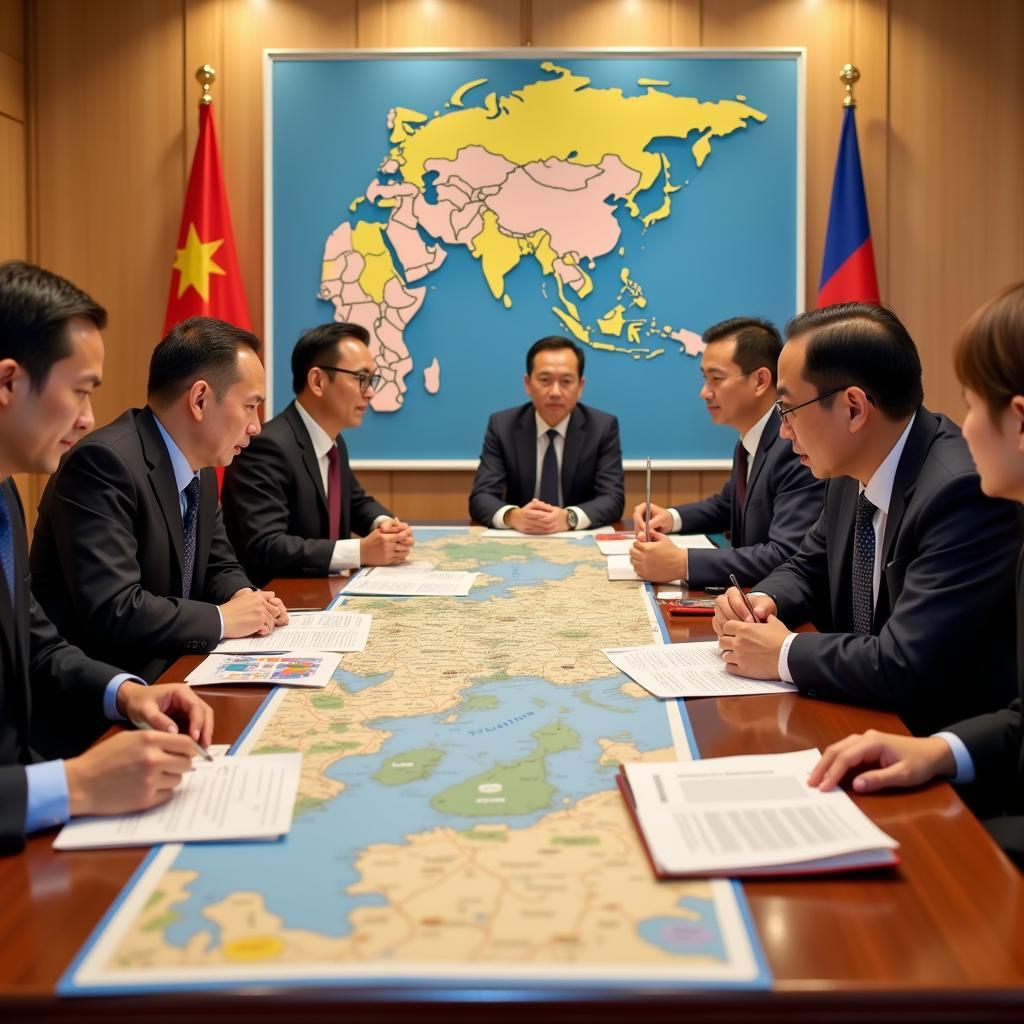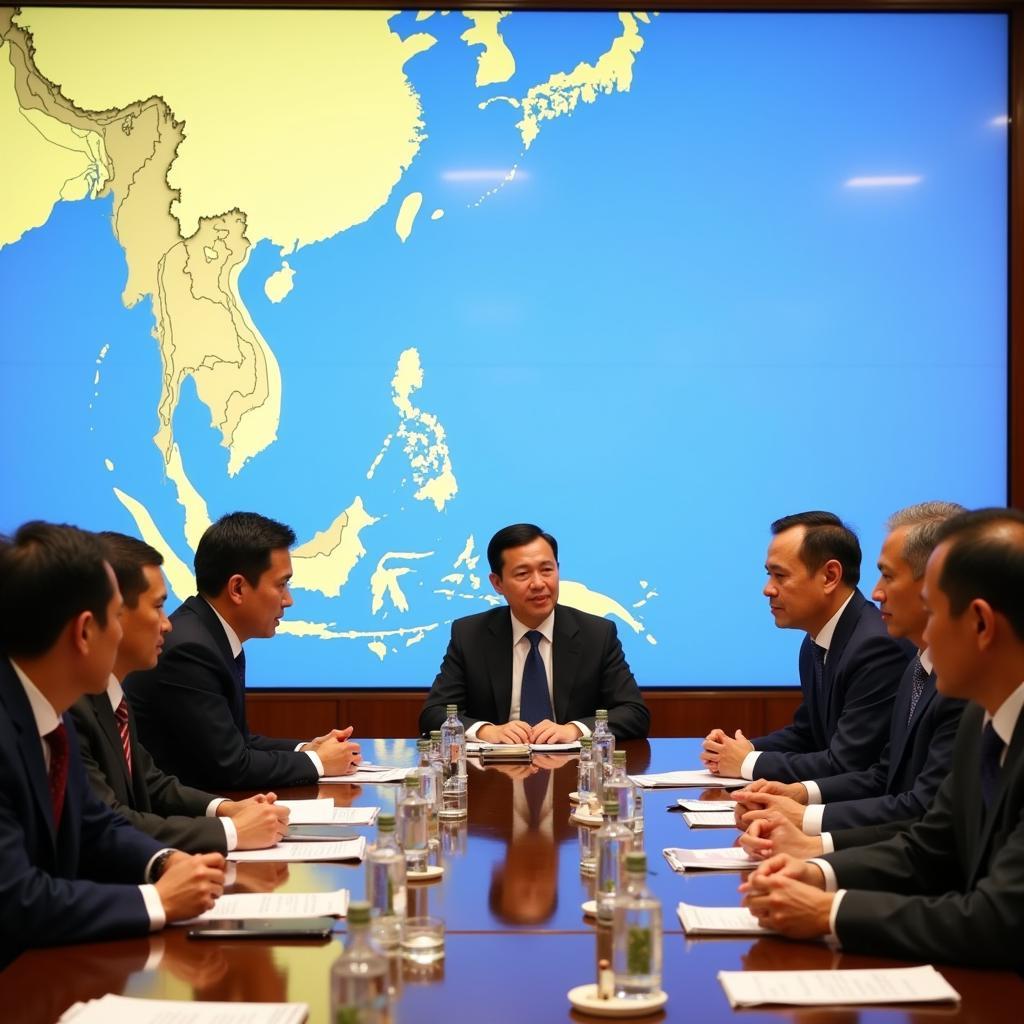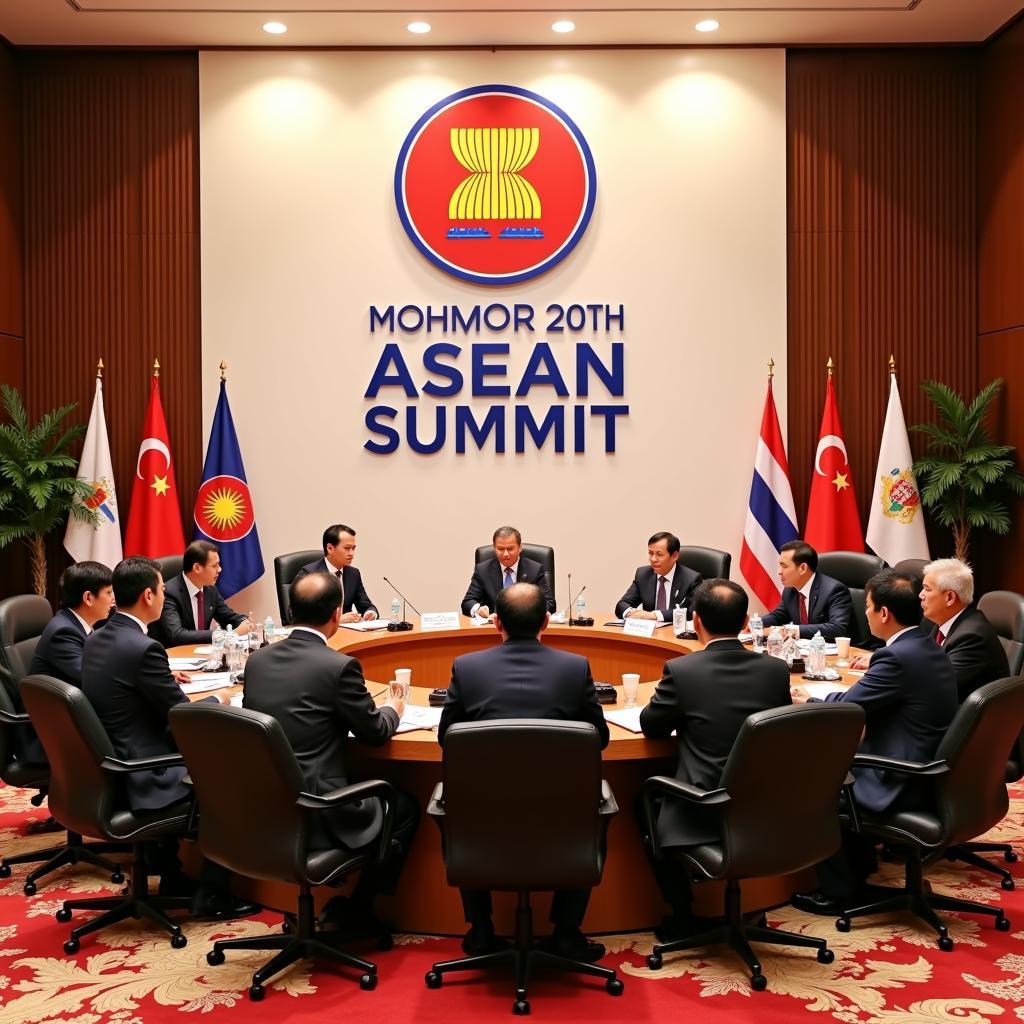The announcement of the AUKUS security pact in 2021 sent ripples throughout the Indo-Pacific region, prompting questions and concerns about its implications for ASEAN. This trilateral agreement between Australia, the United Kingdom, and the United States, focusing on nuclear-powered submarine technology and enhanced security cooperation, has become a focal point in discussions about the future of regional stability and the role of ASEAN in navigating this evolving geopolitical landscape.
 ASEAN and AUKUS Representatives in a Strategic Dialogue
ASEAN and AUKUS Representatives in a Strategic Dialogue
AUKUS: A Catalyst for ASEAN’s Strategic Calculus
The emergence of AUKUS has undeniably added a new layer of complexity to ASEAN’s already intricate web of regional dynamics. While not directly aimed at any specific country or bloc, AUKUS is widely perceived as a response to China’s growing assertiveness in the South China Sea and the broader Indo-Pacific. This perception has placed ASEAN in a delicate position, as it strives to maintain its long-held principles of neutrality and non-alignment while navigating the competing interests of major powers.
One school of thought within ASEAN views AUKUS as an opportunity to bolster regional security architecture. Proponents of this view argue that AUKUS, by enhancing the military capabilities of Australia, a key regional player, can act as a counterbalance to China’s growing influence. This, they believe, could contribute to a more stable regional balance of power, deterring potential conflict and creating a more predictable security environment.
ASEAN’s Concerns and the Importance of Dialogue
Conversely, other ASEAN members express reservations about AUKUS, fearing that it could escalate regional tensions and potentially spark an arms race in the Indo-Pacific. There are concerns that AUKUS might undermine ASEAN-led mechanisms, such as the ASEAN Regional Forum (ARF), which have long been central to regional security dialogues. Some member states worry that AUKUS could exacerbate existing divisions within ASEAN, making it more challenging to reach consensus on crucial issues.
 ASEAN Leaders Discuss Regional Security at a Summit
ASEAN Leaders Discuss Regional Security at a Summit
Despite these divergent viewpoints, there’s a shared understanding within ASEAN that open and constructive dialogue is crucial. ASEAN has consistently emphasized the importance of engaging with all dialogue partners, including AUKUS members, to foster trust, address concerns, and promote cooperation on shared challenges.
The Way Forward: ASEAN’s Centrality and a Rules-Based Order
Moving forward, ASEAN’s ability to navigate the complexities posed by AUKUS will hinge on its capacity to uphold its core principles of centrality, unity, and a rules-based regional order. ASEAN’s long-standing commitment to dialogue, consultation, and consensus-building will be critical in managing the potential ramifications of AUKUS.
A crucial aspect of ASEAN’s approach is the need to engage proactively with AUKUS members. This involves fostering a deeper understanding of the pact’s objectives, addressing concerns transparently, and exploring avenues for practical cooperation in areas of shared interest. Such engagement can help mitigate potential misunderstandings and ensure that AUKUS contributes positively to regional security architecture.
Moreover, ASEAN must continue to champion a rules-based regional order grounded in international law, particularly the United Nations Convention on the Law of the Sea (UNCLOS). By advocating for the peaceful resolution of disputes, respect for territorial integrity, and freedom of navigation, ASEAN can play a vital role in shaping a more stable and predictable Indo-Pacific.
Conclusion: ASEAN’s Enduring Role in a Changing Geopolitical Landscape
The AUKUS security pact presents both challenges and opportunities for ASEAN. By adhering to its core principles, engaging proactively with all dialogue partners, and championing a rules-based regional order, ASEAN can navigate this evolving geopolitical landscape effectively. In doing so, ASEAN can reaffirm its centrality in regional affairs, foster a more inclusive security architecture, and contribute to lasting peace and stability in the Indo-Pacific.


